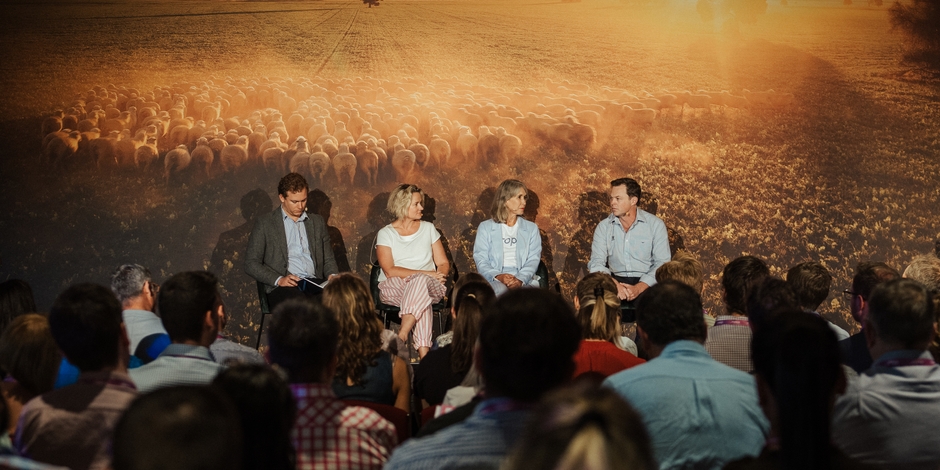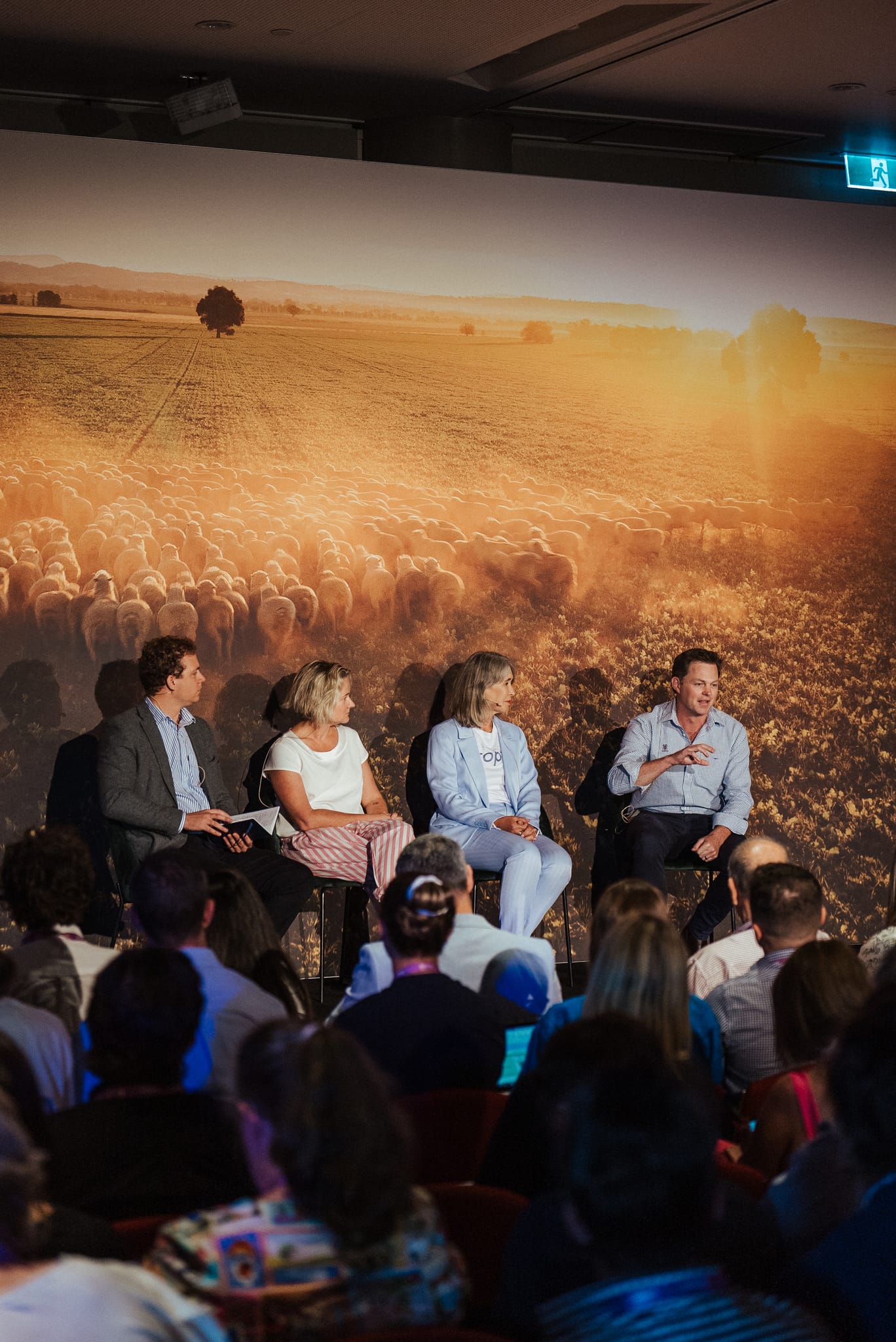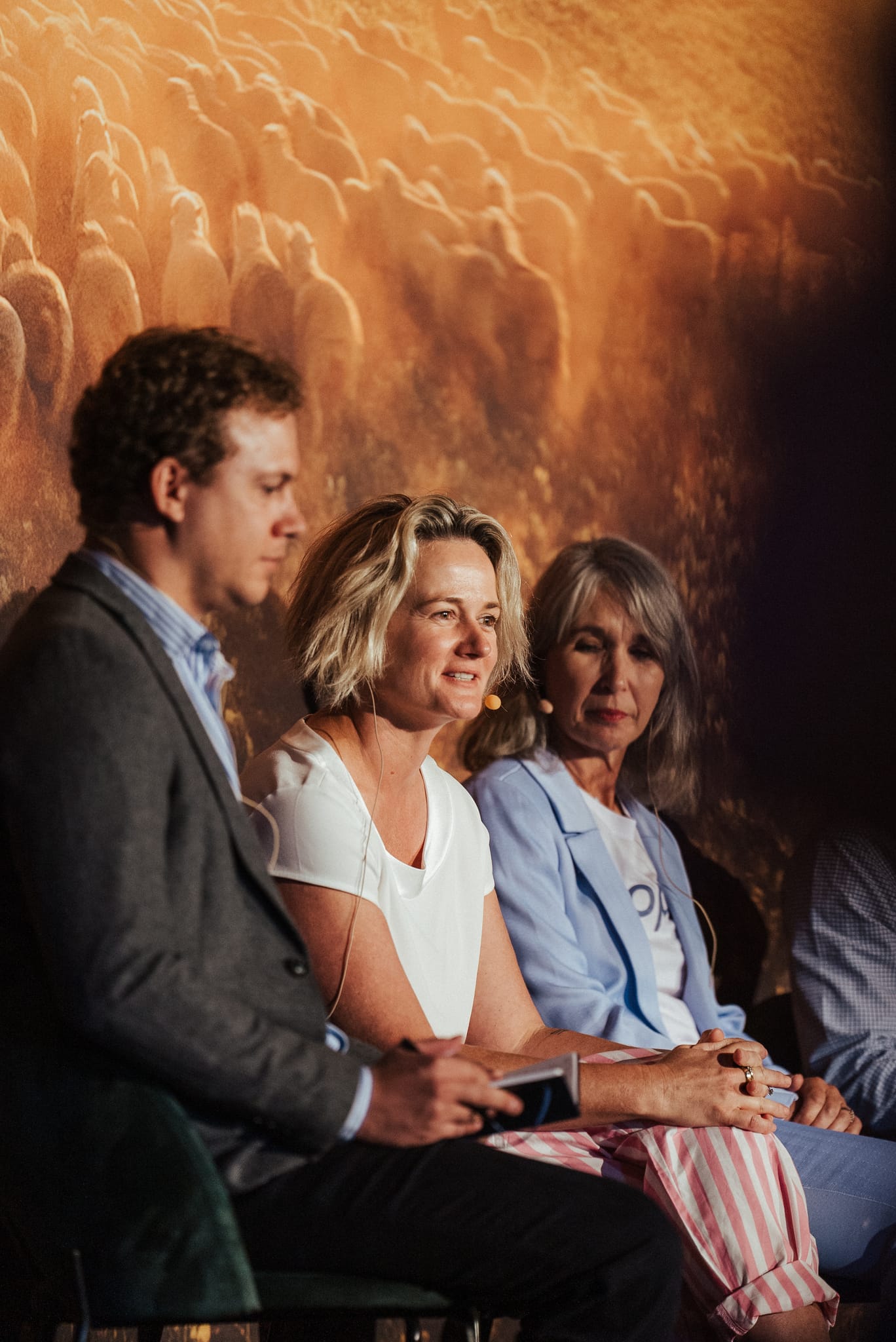Supply chain sustainability: why, how, and what does it mean in reality?
The Australian Government set a target of net zero emissions by 2050, there’s industry-driven sustainability frameworks for key agricultural commodities and momentum is building to account for natural capital in our farming systems. And increasingly consumers want more information about how their food is produced and banks too are looking at ‘green’ credentials. At evokeAG. 2023 two end-to-end players from the beef and grain supply chains outline why sustainability matters to them and what they’re doing to address it.

Greenstock, the Woolworths Group’s standalone beef, pork and lamb supply chain business, is responsible for delivering about five and a half million packets of meat to the supermarket shelf each week and is committed to improving sustainability throughout its supply chain.
“We purchase and process about 10,000 head of cattle a week, about 14,000 pigs and 24,000 lambs,” said Managing Director, Anna Speer.
“For us it’s absolutely critical to use data and analytics to make sure that we’re purchasing the right number of animals, at the right time with the right quality attributes so we avoid waste in our supply chains and the customer gets what they want everyday.”
There’s also been a push to take some of the plastics and cardboard out of Greenstock and Woolworths Group supply chain.
“We’re doing lots of things with a customer focus, for some products like Macro and Specially Selected, my favourites, we’ve shifted away from plastic and into paper packaging, we are also downguaging the amount of plastic in our packs,” she said. “We also look back down the supply chain for other opportunities to take plastic out.”
She gave the example of using a reusable FB4 bin and crate system to transport meat around the supply chain which has removed 150 tonnes of plastic and 2,800 tonnes of cardboard per year, before pointing to trials in feed additives to reduce methane reductions and complimenting the already great initiatives underway with our farmers.
Sustainability gains in grains
Australian agribusiness GrainCorp also has an eye on sustainability with environmental, social, governance (ESG) goals, including a commitment to net zero by 2050.
While GrainCorp has its origins in grain storage, Head of Sustainability, Mick Anderson said it’s a diverse business with many opportunities to drive sustainability in agriculture.
“We have a big and long-standing business around tallow collection into agri-energy,” he said. “We have the used cooking oil collection though AUSCOL and through our own crushing of canola oil … that’s three sources to feed into the agri-energy market, which is a big opportunity for agriculture in Australia.”
GrainCorp’s also invested in the Future Feed Company partnering with CSIRO and other investors in the development and testing of Asparagopsis seaweed in methane reducing feed additives.

“As part of our stake in Future Feed, (we’re) working on how you incorporate those additives into feed, so they stay … long enough to have the impact in the animal, (there is) some really great research and development and lab work going on … so that we can actually provide solutions to supply chains, like Greenstock.”
In March 2023 GrainCorp was awarded $2.9 million in the federal government’s Methane Emissions Reduction in Livestock program for large scale trials of low emission supplements in dairy and beef pasture-based systems.
Demonstrating sustainability
Mick believes GrainCorp plays an important role as a “connector”, working with grain growers and stakeholders like the Grains Research and Development Corporation (GRDC) to improve sustainability on-farm then communicating that throughout the supply chain.
“What we’re working with growers on is trying to package the existing sustainability credentials and let people know that Australia has got the highest adoption rates of some really critical, sustainable agricultural practices,” he said.
Mick said government and businesses are responding to consumer interest in how sustainably their food is produced.
“We can either wait to be told by government, retailers and others what we need to do,” he said.
“Or as an industry, we can come up with the solutions and the roadmaps and present that to regulators, customers, and overseas buyers.”
“It’s about how we tell the story as an industry,” Anna said. “Looking at how we share the great innovation that’s happening on farm, whether it’s through planting of legumes, or feed additives, or better rotational grazing practices or regenerative agriculture.”
“As well as provenance and making sure that we can trace our animals from paddock to the plate, it is critical to give people confidence that what they’re eating is sustainable, high animal welfare, high eating quality, nutritious and affordable protein,” she added.
There’s a growing number of frameworks and systems to assess sustainability in areas like greenhouse gas emissions and biodiversity.
Mick doesn’t think it’s realistic to expect there’ll ever be one global calculator or assessment tool.
“However, most of those tools all have the same inputs,” he said.
“If you’re talking about calculating greenhouse gas emissions for a cropping enterprise, ultimately it’s an estimate which has a whole bunch of factors built into it.”
But he said aligning the collection of data at a grower level would make sense.
“So that if I’m measuring these things, I can feed them into whatever tool the customer wants and they’ll get the number they need,” he said. “But I’ll get the insight into what activities I need to alter or modify to improve.”

Anna agreed that tracking and measuring sustainability performance is important.
“You need to have your numbers to be able to demonstrate the improvements that you’re making in your business,” Anna said. “You want them anyway, as farmers it’s in your DNA to continuously improve on farm productivity and sustainability.”
Anna and Mick joined Chief Sustainability Officer of CropX Bridgit Hawkins for an evokeAG. panel discussion ‘Reality check: moving beyond sustainability frameworks in agriculture’ facilitated by reporter Charlie Peel from The Australian.
Early bird tickets are now on sale for evokeAG. 2024 to be held on 20-21 February 2024 in Perth, Western Australia. Following a sell-out event in 2023 we are encouraging delegates to secure their tickets, flights and accommodation early.
We look forward to seeing you in Perth for evokeAG. 2024, in the meantime, catch up on the other conversations about sustainability, climate resilience and the role of agtech in meeting those challenges from evokeAG. 2023 here.
